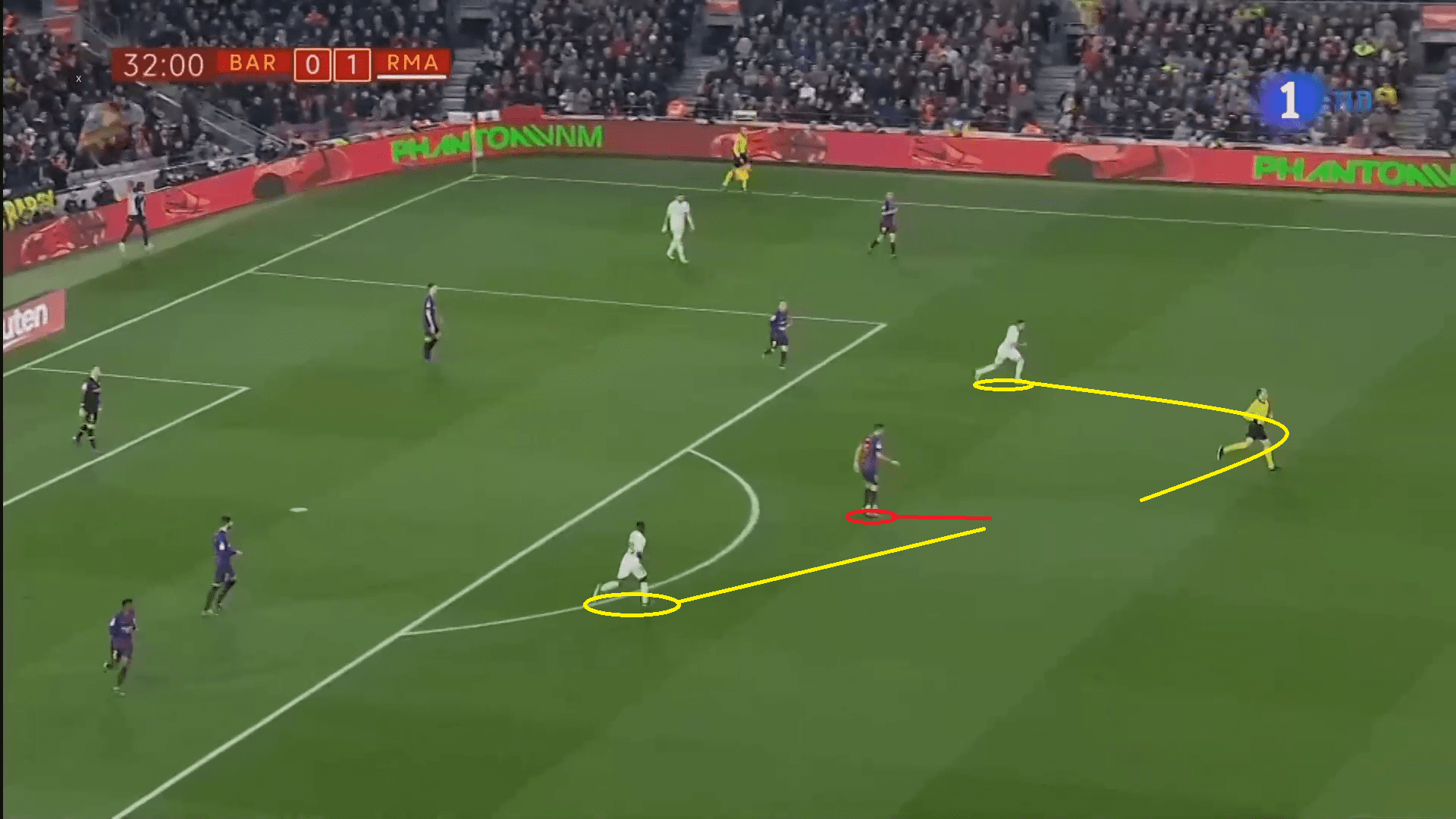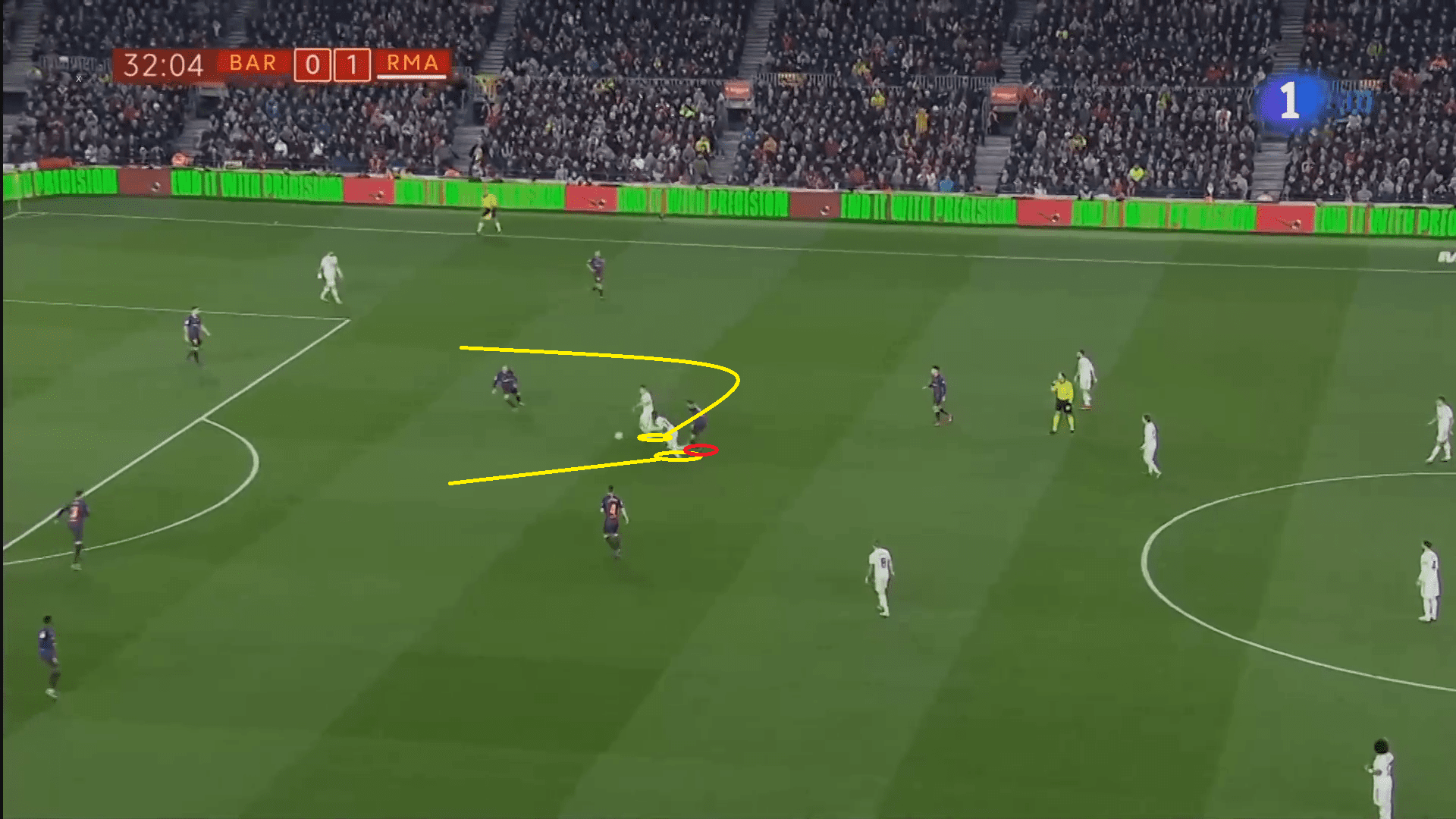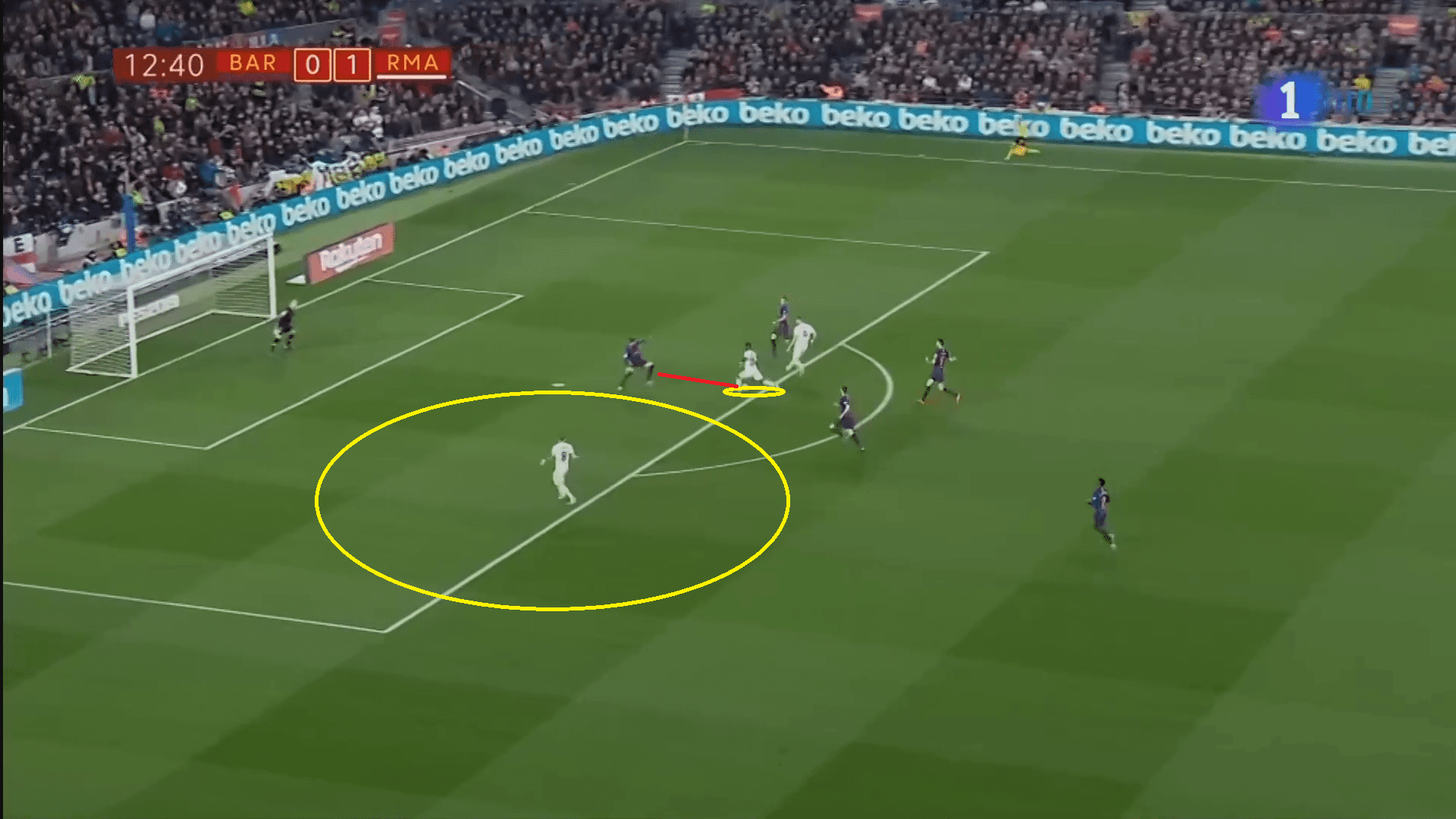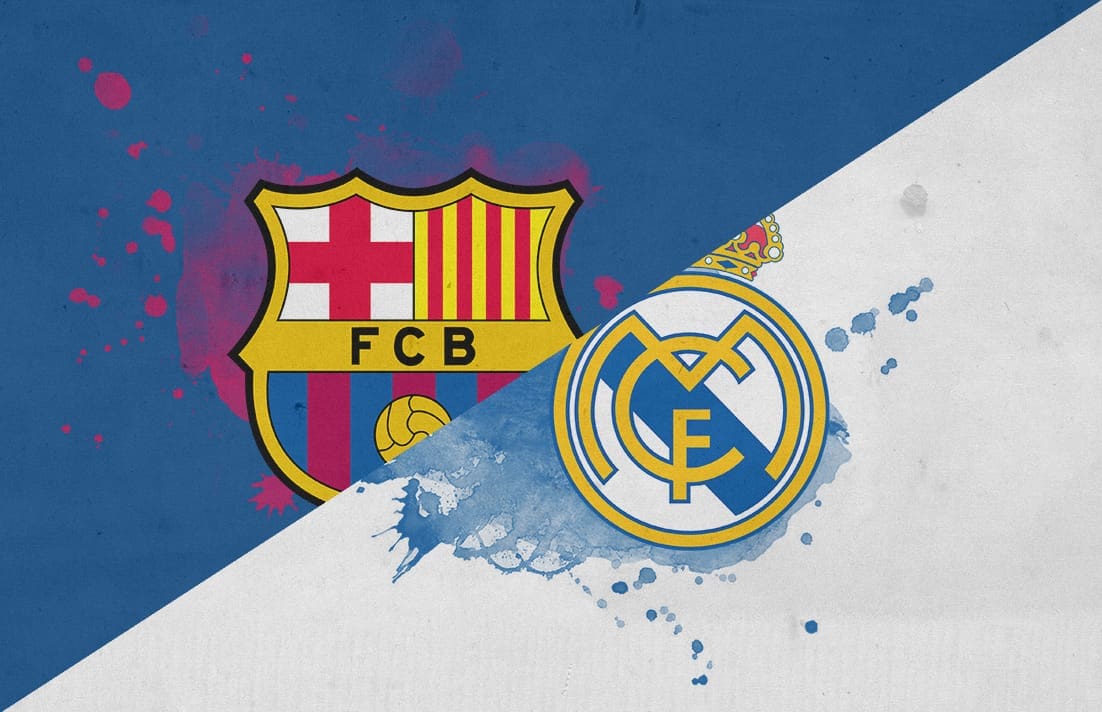The Copa del Rey is rarely the attention of the world’s focus. As it served up the first non-La Liga Clasico outside the Super Cup since the 2014 final though, it was the game to watch on Wednesday evening as Real Madrid travelled to the Camp Nou to face Barcelona.
Santiago Solari’s side got off to a dream start as a lofted ball across the box was brought down by Karim Benzema and teed up perfectly for Lucas Vazquez to flick home. As the game went on, Barcelona became more comfortable and eventually got their equaliser through Malcom. The Brazilian capitalised after Jordi Alba broke Real Madrid’s back line and was hauled down by Keylor Navas, with Malcom taking up the rebound after Luis Suarez had hit the post.
Here, our tactical analysis will use statistics to identify what key points Real Madrid can take from the game as they were held to a 1-1 draw by Barcelona.
A start like a rocket
Real Madrid started this game like the team full of confidence that they have proven to be in recent weeks. Pressing high and with a free flowing passing game, they kept the ball moving as Barcelona’s play looked disjointed and clumsy in the early stages. It was no surprise that they managed to get on the scoresheet as early as six minutes in.
Superb movement from the Real Madrid attack caught out Alba, who didn’t see Benzema in behind him as the ball looped over his head. Clement Lenglet was then just as surprised to see Vazquez dash past him at the near post.
Despite having opened the scoring Madrid kept up their flow, registering three shots in the first 15 minutes alone. Perhaps even more impressively, they even matched Barcelona for passes. Despite ending the game with 451 passes compared to their hosts’ 611, in the first 10 minutes it was the visitors who had made far more, with 86 passes compared to 56. That early domination was not to last, but it did show what the underdogs were capable of playing Barcelona at their own game in their own stadium.


That kind of start got Real Madrid off on the right foot and was vital given the mental aspect of the game. It gave players like Vinicius Junior the confidence to take on his men and look to break forwards. By stunning a Barcelona side with their talisman Lionel Messi on the bench, it was no wonder that they looked so shell-shocked and subdued in the early stages.
High pressing led to fatigue
Right from the very first minute, Real Madrid looked to press high. It worked well too, putting Marc-Andre ter Stegen in particular under increasing pressure whilst also leading to some rare mistakes from the likes of Sergio Busquets and Arthur Melo in possession. Los Blancos had Barcelona rattled in the early stages and it was a key element behind the phenomenal start that the visitors made at Camp Nou.
The second half started the same. Within the first minute of the second period, Toni Kroos twice pressed high to rob the ball in the Barcelona half and put his side on the front foot. The problem came when Real tired around the hour mark, instead being forced to retreat deep into their own half and give up more possession, eventually leading to Barcelona equalising. By the time they got their second wind, only for the closing 10 or so minutes, it seemed to be too little, too late as Barcelona had recovered their confidence and found their feet.


With a Madrid derby on Saturday, Solari was clearly not afraid to run his troops into the ground by pushing for the kind of a high press which his side are not typically used to. It worked, but could not be sustained over the full 90 minutes. Solari’s teams have used the press more and more in recent weeks, such as against Girona, but they are still some way off perfecting it.
Marcelo didn’t convince
Having been replaced by Sergio Reguilon as first choice in La Liga, one of the big doubts in Solari’s team selection was always bound to be at left-back. Marcelo got the nod, as he did in the last round of the Copa del Rey, but again appeared unconvincing. His positioning remained suspicious at best, often getting caught out as he drifted forward and then being found too deep and playing on attackers. He got away with one comical attempt to check his run to play Malcom offside in a very tight call which would have seen the Barcelona forward one-on-one with Navas had he have timed his run a second later.
Having been chosen as the more experienced and supposedly more reliable option, it was not what Solari would have wanted from the left-back. A fine display from Sergio Ramos and Raphael Varane meant that there were not many calamitous moments. Without Lionel Messi for much of the game it gave the Brazilian more freedom to move forwards, but he still left his side exposed.

His heatmap showed he spent most of the game on the halfway line, in a far more advanced position than Dani Carvajal on the opposite flank. If Marcelo is to return to the team regularly, he needs to learn and follow the example of his team-mates. Time and time again, he fails to prove that he has learnt from his mistakes and continues to lose his discipline when on the move.
The nerves got to Vinicius
Over the past few weeks it has been nothing but continual improvement for the young Brazilian. A Clásico gave him his first opportunity to become the star, particularly having been selected ahead of Gareth Bale, yet he failed to take it. His woeful decision making returned, much to the frustration of a wide open Benzema who surely would have made it 2-0 had Vinicius looked up and passed.
With fewer touches (34) than anyone else on the field that started and an even more concerning pass completion rate at 46%, it’s clear that he faded on what could have been his big night. After excelling against the likes of Alaves and Girona, he earned his spot in the team for this monumental fixture, but Solari will surely have doubts over whether his team can afford to carry a passenger like they did with Vinicius on Wednesday.

For all of his threat and pace on the ball, he just couldn’t add the finishing touch with four shots, all of them off target. It leaves work to do for the youngster, who once again reflected the rawer side of his game which many had hoped he had left behind. The potential is clear, but he won’t truly be comfortable at this level until he can step up to the plate in these high profile games.
Conclusion
It was a fair result between Spanish football’s two titans and one which reflected the flow of the game. Real Madrid dominated the first half only to tire and allow Barcelona to grow back into the game in the second. An away goal is valuable and it keeps the tie more than alive, but it is all to play for at the Estadio Santiago Bernabeu come the end of the month. Whether Marcelo and Vinicius have justified a place in the team for that game remains another question entirely.
If you love tactical analysis, then you’ll love the digital magazines from totalfootballanalysis.com – a guaranteed 100+ pages of pure tactical analysis covering topics from the Premier League, Serie A, La Liga, Bundesliga and many, many more. Buy your copy of the January issue for just ₤4.99 here, or even better sign up for a ₤50 annual membership (12 monthly issues plus the annual review) right here.





Comments